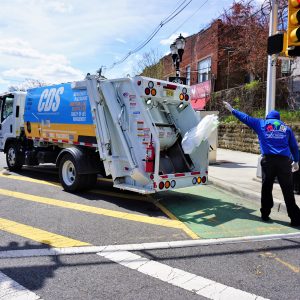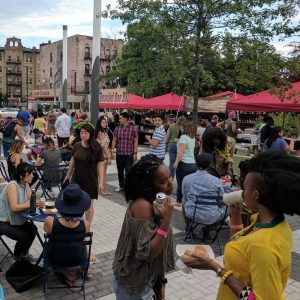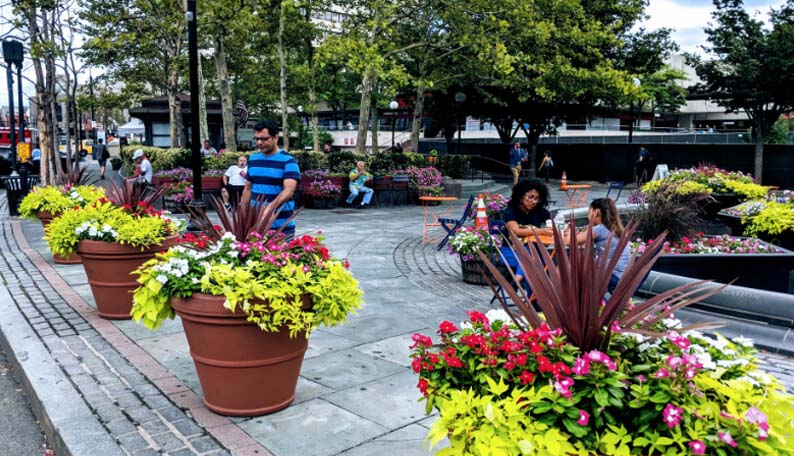Business Improvement Districts Get Places “Investment Ready”
By Chris Bernardo
President, Commercial District Services LLC
June 13, 2023
Delivering value and having an impact with limited resources is always a challenge. BIDs are often presented with issues similar to the municipalities in which they operate. The problem can often be traced to the imbalance created between the funds needed to provide meaningful impact and the assessment revenue generated to create the budget.
The value proposition of a BID for real estate stakeholders is for them to work collectively to create their own economies of scale. By leveraging their own resources through an assessment district, they can fund supplemental services that stabilize property values, spur new public and private investment, and ultimately, increase the overall investment value of a place. However, real economic impact is hard fought and issues that impact the quality of experience in downtown have to be addressed head-on.
It requires discipline to stay focused on the things that are needed and to avoid the numerous “opportunities” and big ideas that emerge. Unnecessary office and administrative expenses, institutional branding, and marketing programs with little or no measurable value can draw attention and funding from the physical, street-level programming that actually moves the needle on economic development.
Focus on making a place investment ready. When investors visit a site for potential development and they look beyond the footprint of the project, they’re looking to see what’s happening around the site to determine if the area can support the economics of the project and a successful lease-up.
BIDs play a tremendous role in demonstrating the investment readiness of a place by focusing on three key areas:
- Quality-of-life
- Visual improvements
- Space Activation

Dependable daily sanitation sponsored by Business Improvement Districts can have an impact on investment readiness.
Daily sanitation, district maintenance, and supplemental policing have the ability to drive investment decisions in commercial centers like no other set of activities. Instinctually we place a higher value on places that look and feel like they meet the expectations that we have for ourselves and our families. Whether it’s choice of where to dine after an event or where to relocate a company, those decisions are impacted by consumer confidence and our assessment of the cleanliness and safety of a place.
Visual Improvements: Filling gaps in public investment and spurring new private investment has long been a rationale for forming a BID in the first place. Focusing on the physical environment is a key component to adding value and creating change. Clean and modern building signage, beautiful and well-maintained streetscape planters, seasonal light pole banners, holiday decorations, and supplemental lighting are the types of investments that increase value for both the property owner and small business tenant.
Quality-of-life: When formulating a budget and determining how much is enough, it’s important for place managers to consider if their work plan fully addresses the unique challenges their district may have when it comes to cleanliness and public safety during the daytime, evening, overnight, and weekends. This determination becomes increasingly important for mixed-use districts where residential lifestyles and needs intersect with restaurants and retail businesses.

Outdoor market coordinated by the Journal Square Special Improvement District at Magnolia Landing outside KRE’s “Journal Squared” project.
Space Activation: How our sidewalks and public spaces make people feel is the most important marketing program there is— it’s the actual visitor experience that creates recurring customer relationships, word-of-mouth advertising, and long-term interest in a place.
Finding the right opportunities for supplemental public seating to support our restaurants and cafes and providing managed access to sidewalks and mid-block passages for both food operators and retailers can create a sense of place that highlights the investment value of a commercial center.
Similarly, establishing scheduled and predictable activities like farmers’ markets or nighttime artisan markets within pocket parks, plazas, and front-facing parking lots can create a sense of vibrancy around the real estate assets that further convey the stability and investment worthiness of a place.
The collective power of property owners and retailers can be fully realized if place managers focus on the physical and human assets of their districts, setting the table for the type of experience that attracts long-term investment and compels customers, residents, and visitors to spread the good word about a district.
Chris Bernardo is the President and CEO of Commercial District Services, LLC (CDS), a public space management firm focused on the revitalization of business districts and public spaces. Through his work as a public space manager, Mr. Bernardo works closely with Special Improvement District stakeholders, municipal staff, and elected officials to implement a broad range of public space improvement programs, including Streetscape Beautification, Placemaking, Outdoor Maintenance and Sanitation, and Quality-of-Life Management. Mr. Bernardo is a graduate of Montclair State University, with a degree in Political Science.
Learn more about CDS on their website, or follow them on Instagram, Facebook, and LinkedIn.


